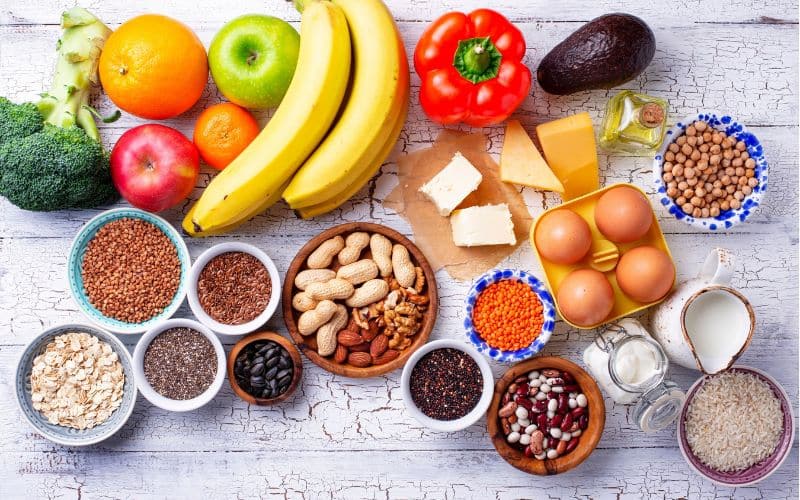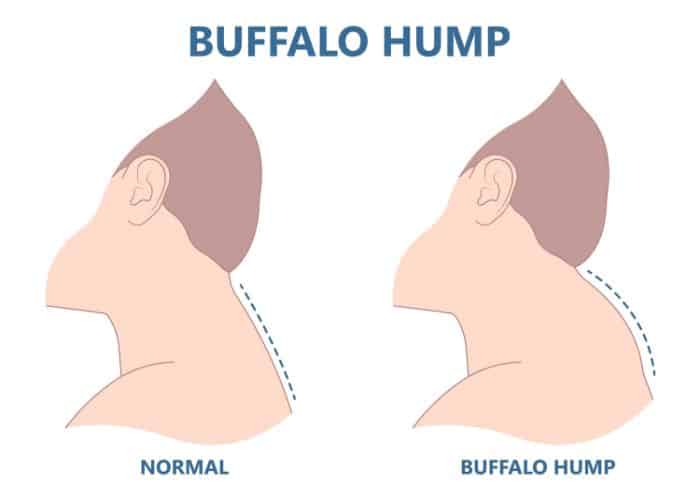Dietary restrictions refer to limitations on certain foods or drinks due to various reasons. These reasons may include allergies, religious beliefs, medical conditions, or personal preferences. While some people may choose to follow a certain diet for ethical or environmental reasons, others may have no choice but to restrict their diet due to health concerns.
For individuals with food allergies or intolerances, dietary restrictions can be a matter of life or death. Common food allergens include peanuts, tree nuts, shellfish, and dairy products. Those with celiac disease must avoid gluten-containing foods, while those with diabetes must limit their intake of sugar and carbohydrates. Additionally, some religions have dietary laws that dictate what foods are allowed or prohibited, such as kosher and halal diets.
Overall, dietary restrictions can be challenging to navigate, but they are essential for maintaining good health and preventing adverse reactions. It is crucial to understand the reasons behind these restrictions and to seek guidance from healthcare professionals or dietitians to ensure that one's nutritional needs are being met while adhering to their dietary limitations.
Contents
Understanding Dietary Restrictions
Dietary restrictions refer to limitations on what a person can eat. These restrictions can be due to various reasons, including allergies, religious beliefs, ethical concerns, personal preferences, or medical conditions. Understanding dietary restrictions is crucial for individuals who want to maintain a healthy and balanced diet.
Definition of Dietary Restrictions
Dietary restrictions are limitations on certain foods or food groups that a person can consume. These restrictions can be voluntary or involuntary. Voluntary dietary restrictions are those that a person chooses to follow, such as vegetarianism or veganism. Involuntary dietary restrictions are those that are imposed on a person due to medical conditions or allergies.
Types of Dietary Restrictions

There are various types of dietary restrictions that people may follow. Some of the most common types include:
- Allergies: Allergies are immune responses to certain foods or substances. Common food allergies include peanuts, tree nuts, milk, eggs, soy, wheat, fish, and shellfish. People with food allergies must avoid the allergen to prevent severe allergic reactions.
- Religious Restrictions: Religious dietary restrictions are based on religious beliefs and practices. For example, Muslims follow halal dietary restrictions, which prohibit the consumption of pork and alcohol. Jews follow kosher dietary restrictions, which prohibit the consumption of certain animals and require specific preparation methods.
- Medical Conditions: Certain medical conditions require specific dietary restrictions. For example, people with celiac disease must avoid gluten, which is found in wheat, barley, and rye. People with diabetes must monitor their carbohydrate intake to control their blood sugar levels.
- Ethical Concerns: Some people follow dietary restrictions due to ethical concerns. For example, vegans avoid all animal products, including meat, dairy, and eggs, due to concerns about animal welfare and environmental sustainability.
Understanding dietary restrictions is essential for individuals who want to maintain a healthy and balanced diet. By following dietary restrictions, people can avoid potential health problems and improve their overall well-being.
Medical Dietary Restrictions
When it comes to dietary restrictions, medical reasons are one of the most common causes. In this section, we'll explore the three main types of medical dietary restrictions: food allergies, digestive disorders, and metabolic disorders.
Food Allergies
Food allergies are a common type of medical dietary restriction. They occur when the immune system overreacts to certain proteins found in food. Common food allergens include peanuts, tree nuts, shellfish, fish, milk, eggs, soy, and wheat.
People with food allergies must avoid the foods that trigger their allergic reactions. Even small amounts of these foods can cause severe reactions, including anaphylaxis, a potentially life-threatening allergic reaction.
Digestive Disorders
Digestive disorders are another common type of medical dietary restriction. These disorders affect the digestive system, making it difficult for the body to digest certain types of food. Common digestive disorders include lactose intolerance, celiac disease, and inflammatory bowel disease.
People with digestive disorders must avoid the foods that trigger their symptoms. For example, people with lactose intolerance must avoid dairy products, while people with celiac disease must avoid gluten-containing foods.
Metabolic Disorders
Metabolic disorders are a group of conditions that affect the body's metabolism. These conditions can cause the body to process certain nutrients incorrectly, leading to health problems. Common metabolic disorders include diabetes, phenylketonuria (PKU), and galactosemia.
People with metabolic disorders must follow a strict diet to manage their condition. For example, people with diabetes must monitor their carbohydrate intake and avoid foods that cause their blood sugar levels to spike.
In conclusion, medical dietary restrictions are an important part of many people's lives. By following a restricted diet, people with food allergies, digestive disorders, and metabolic disorders can manage their condition and maintain good health.
Religious Dietary Restrictions
Many religions have specific dietary restrictions that are followed by their adherents. These restrictions are often based on religious beliefs and practices. In this section, we will discuss some of the most common religious dietary restrictions.
Hindu Dietary Restrictions

Hindus generally avoid foods they believe hinder spiritual development. For example, garlic and onion and other foods that stimulate the senses. While eating meat is not prohibited, many Hindus avoid it. Eating beef itself is prohibited (cows are sacred), but dairy products from cows are acceptable and considered spiritually pure. Vegetarianism is also common among Hindus, and many Hindus follow a lacto-vegetarian diet, which includes dairy products but excludes eggs.
Islamic Dietary Restrictions
Islamic dietary restrictions are known as Halal, which means lawful or permitted. Muslims are prohibited from consuming pork and its by-products, as well as any meat that has not been slaughtered in the name of Allah. Alcohol and any food or drink that contains it are also prohibited. Halal meat must be slaughtered by a Muslim and must be free from any defects or diseases. Muslims also fast during the month of Ramadan, which involves abstaining from food and drink during daylight hours.
Jewish Dietary Restrictions
Jewish dietary restrictions are known as Kashrut, which means fit or proper. Jews are prohibited from consuming meat and dairy products together, and they must wait a certain amount of time between eating meat and dairy. Pork and its by-products are also prohibited, as well as shellfish and other seafood without fins or scales. Only certain animals are considered kosher, and they must be slaughtered in a specific way by a trained Jewish butcher. Jews also fast on certain days of the year, including Yom Kippur, which involves abstaining from food and drink for 25 hours.
In conclusion, religious dietary restrictions are an important part of many religions. They are based on religious beliefs and practices and are followed by adherents to these religions. These restrictions can vary widely between different religions and can have a significant impact on what adherents can eat.
Ethical and Lifestyle Dietary Restrictions
Dietary restrictions can be based on ethical or lifestyle choices. Here are some of the most common ethical and lifestyle dietary restrictions:
Vegetarianism
Vegetarianism is a dietary restriction where people do not consume meat, fish, or poultry. Some vegetarians also exclude dairy, eggs, and other animal products. Vegetarians often choose this lifestyle for ethical, environmental, or health reasons.
Vegetarianism has been associated with lower risks of heart disease, high blood pressure, and certain types of cancer. However, vegetarians need to ensure they consume enough protein, iron, calcium, and vitamin B12 as these nutrients are commonly found in animal products.
Veganism
Veganism is a more restrictive form of vegetarianism where people do not consume any animal products, including dairy, eggs, honey, and gelatin. Vegans often choose this lifestyle for ethical, environmental, or health reasons.
Vegan diets have been associated with lower risks of heart disease, high blood pressure, and certain types of cancer. However, vegans need to ensure they consume enough protein, iron, calcium, vitamin B12, and omega-3 fatty acids as these nutrients are commonly found in animal products.
Raw Food Diet

A raw food diet is a dietary restriction where people only consume uncooked, unprocessed, and organic foods. This diet typically includes fruits, vegetables, nuts, seeds, and sprouted grains.
Raw food diets have been associated with lower risks of heart disease, high blood pressure, and certain types of cancer. However, people on this diet need to ensure they consume enough protein, iron, calcium, vitamin B12, and omega-3 fatty acids as these nutrients are commonly found in animal products and cooked foods.
In conclusion, ethical and lifestyle dietary restrictions are becoming more popular as people become more aware of the impact of their food choices on their health, the environment, and animal welfare. Vegetarianism, veganism, and raw food diets are some of the most common ethical and lifestyle dietary restrictions. It is important to ensure that these diets provide enough nutrients to support overall health and wellbeing.
Managing Dietary Restrictions
Managing dietary restrictions can be challenging, but with careful planning and preparation, it is possible to maintain a healthy and satisfying diet. Here are some tips on how to manage dietary restrictions.
Meal Planning
Meal planning is an essential part of managing dietary restrictions. It helps to ensure that you have a variety of nutritious and tasty meals that meet your dietary needs. When planning your meals, consider the following:
- Choose fresh, whole foods that are naturally free of the allergens or ingredients you need to avoid.
- Read food labels carefully to check for hidden ingredients or allergens.
- Prepare meals in advance and freeze them for later use.
- Use substitutes for ingredients you need to avoid, such as gluten-free flour or non-dairy milk.
Eating Out
Eating out can be challenging for people with dietary restrictions, but it is possible to find restaurants that cater to your needs. When dining out, consider the following:
- Research restaurants in advance and check their menus for options that meet your dietary needs.
- Call ahead and speak to the chef or manager to discuss your dietary restrictions.
- Ask the server about ingredients and preparation methods.
- Be prepared to make modifications to menu items or request substitutions.
Cross-Contamination Prevention

Cross-contamination can occur when allergens or other ingredients come into contact with food that needs to be avoided. To prevent cross-contamination, consider the following:
- Use separate cutting boards, utensils, and cookware for foods that need to be avoided.
- Wash hands and surfaces thoroughly before preparing food.
- Store foods that need to be avoided separately from other foods.
- Be aware of cross-contamination risks when dining out or eating at someone else's home.
Managing dietary restrictions can be challenging, but by taking a proactive approach to meal planning, eating out, and cross-contamination prevention, it is possible to maintain a healthy and satisfying diet.
Frequently Asked Questions
How do I inquire about dietary restrictions?
If you are hosting an event or preparing a meal for someone, it is important to inquire about any dietary restrictions they may have. You can simply ask the person if they have any dietary restrictions or preferences that you should be aware of. It is important to be respectful and non-judgmental when asking about dietary restrictions.
What are some common dietary restrictions?
Some common dietary restrictions include lactose intolerance, gluten intolerance or celiac disease, nut allergies, and vegetarian or vegan diets. Other dietary restrictions may include low-sugar or low-fat diets, kosher or halal diets, and raw food diets.
What are some examples of dietary preferences?
Some people may have dietary preferences that are not necessarily restrictions. For example, some people may prefer to eat organic or locally sourced foods, while others may prefer to eat a low-carb or high-protein diet.
How can I accommodate dietary restrictions?
Accommodating dietary restrictions can be as simple as offering alternative options or making small adjustments to a recipe. For example, if someone is lactose intolerant, you can offer a dairy-free alternative. If someone is gluten intolerant, you can offer gluten-free options. It is important to be mindful of cross-contamination when preparing food for someone with dietary restrictions.
What is the difference between dietary restrictions and allergies?
While dietary restrictions and allergies may seem similar, there are some important differences. Allergies can be life-threatening, while dietary restrictions are typically a personal preference or a result of a medical condition. It is important to take allergies seriously and to avoid any potential allergens when preparing food.
What are the most important things to consider when accommodating dietary restrictions?
When accommodating dietary restrictions, it is important to be respectful and non-judgmental. It is also important to communicate with the person and to ask questions if you are unsure about their dietary needs. It is important to be mindful of cross-contamination and to take allergies seriously. Finally, it is important to offer alternative options and to make small adjustments to recipes when necessary.






